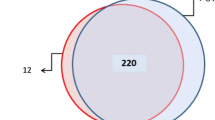Abstract
The need to familiarize medical students and graduate health professional students with research training opportunities that cultivate the appeal of research careers is vital to the future of research. Comprehensive evaluation of a cancer research training program can be achieved through longitudinal tracking of program alumni to assess the program’s impact on each participant’s career path and professional achievements. With advances in technology and smarter means of communication, effective ways to track alumni have changed. In order to collect data on the career outcomes and achievements of nearly 500 short-term cancer research training program alumni from 1999–2013, we sought to contact each alumnus to request completion of a survey instrument online, or by means of a telephone interview. The effectiveness of each contact method that we used was quantified according to ease of use and time required. The most reliable source of contact information for tracking alumni from the early years of the program was previous tracking results, and for alumni from the later years, the most important source of contact information was university alumni records that provided email addresses and telephone numbers. Personal contacts with former preceptors were sometimes helpful, as were generic search engines and people search engines. Social networking was of little value for most searches. Using information from two or more sources in combination was most effective in tracking alumni. These results provide insights and tools for other research training programs that wish to track their alumni for long-term program evaluation.


Similar content being viewed by others
References
Jimmy R, Palatty PL, D’Silva P, Baliga MS, Singh A (2013) Are medical students inclined to do research? J Clin Diagn Res 7(12):2892–5. doi:10.7860/JCDR/2013/6698.3786, PMID: 24551667
Solomon SS, Tom SC, Pichert J, Wasserman D (2003) Impact of medical student research in the development of physician-scientists. J Investig Med 51(3):149–56
Khadaroo RG, Rotstein OD (2002) Are clinician-scientists an endangered species? Barriers to clinician-scientist training. Clin Invest Med 25(6):260–1
Culliton BJ, D’Auria J (1998) The physician-scientist really is an endangered species. J Investig Med 46(9):417–9
Mostafa SR, Khashab SK, Fouaad AS, Abdel Baky MA, Waly AM (2006) Engaging undergraduate medical students in health research: students’ perceptions and attitudes, and evaluation of a training workshop on research methodology. J Egypt Public Health Assoc 81(1–2):99–118
de Oliveira NA, Luz MR, Saraiva RM, Alves LA (2011) Student views of research training programmes in medical schools. Med Educ 45(7):748–755
Burgoyne LN, O’Flynn S, Boylan GB (2010) Undergraduate medical research: the student perspective. Med Educ Online 10:15. doi:10.3402/meo.v15i0.5212, PMID: 20844608
Nikkar-Esfahani A, Jamjoom AA, Fitzgerald JE (2012) Extracurricular participation in research and audit by medical students: opportunities, obstacles, motivation and outcomes. Med Teach 34(5):e317–24. doi:10.3109/0142159X.2012.670324
Farooq Sheikh AS, Sheikh SA, Kaleem A, Waqas A. Factors contributing to lack of interest in research among medical students Adv Med Educ Pract. 2013; 4: 237–243. Published online Nov 7, 2013. doi: 10.2147/AMEP.S51536 PMCID: PMC3826903.
Committee C, Institute for International Medical Education (2002) Global minimum essential requirements in medical education. Med Teach 24(2):130–5
Leonard JC, Ellsbury KE (1996) Gender and interest in academic careers among first- and third-year residents. Acad Med 71(5):502–504
She L, Wu B, Xu L, Wu J, Zhang P, Li E (2008) Determinants of career aspirations of medical students in southern China. BMC Med Educ 8:59
Naqvi HA (2010) Students’ research: tradition ahead of its time. J Coll Physicians Surg Pak 20(10):701–2. doi:10.2010/JCPSP.701702
Harsha Kumar H, Jayaram S, Kumar GS, Vinita J, Rohit S, Satish M, Shusruth K, Nitin A (2009) Perception, practices towards research and predictors of research career among UG medical students from coastal south India: a cross-sectional study. Indian J Community Med 34(4):306–9
Langhammer CG, Garg K, Neubauer JA, Rosenthal S, Kinzy TG (2009) Medical student research exposure via a series of modular research programs. J Investig Med 57(1):11–17
Zier K, Wyatt C, Muller D (2012) An innovative portfolio of research training programs for medical students. Immunol Res 54(1-3):286–291. doi:10.1007/s12026-012-8310-x, Review. PMID: 22418729
Hunskaar S, Breivik J, Siebke M, Tømmerås K, Figenschau K, Hansen JB (2009) Evaluation of the medical student research programme in Norwegian medical schools. A survey of students and supervisors. BMC Med Educ 9:43
National Institutes of Health. Types of grant funding. http://grants.nih.gov/grants/funding/funding_program.htm#Resource Accessed on October 30, 2014.
Heimburger DC, Waterbor J, Fish L, Brooks CM (2000) Cancer prevention and control training program at the University of Alabama at Birmingham. J Cancer Educ 15(2):69–72
Heimburger DC, Waterbor JW, Fish L, Brooks CM (2000) An interdisciplinary training program in nutrition sciences and cancer. J Cancer Educ 15(3):130–3
Daniel CL, Brooks CM, Waterbor JW (2011) Approaches for longitudinally tracking graduates of NCI-funded short-term cancer research training programs. J Cancer Educ 26:58–63
Desmond RA, Padilla LA, Daniel C, Prickett, CT, Venkatesh R, Brooks CM, and Waterbor, JW. Career outcomes of graduates of R25E short-term cancer research training programs. [Submitted]
Drupal Content management system: http://www.drupal.org; Webform module: https://www.drupal.org/project/webform; Webform Encryption Module: https://www.drupal.org/project/webform_encrypt; MCRYPT: http://php.net/manual/en/book.mcrypt.php; MySQL Database: http://www.mysql.com/. Accessed on October 31, 2014.
Wikipedia: Google search. http://en.wikipedia.org/wiki/Google_Search. Accessed on October 28, 2014.
Hipaaspace. http://www.hipaaspace.com/medical_billing/coding/billing_code_lookup_services.aspx. Accessed on October 30, 2014
Wikipedia: Facebook. http://en.wikipedia.org/wiki/Facebook. Accessed on October 28, 2014.
LinkedIn: World’s Largest Professional Network. https://www.linkedin.com/. Accessed on October 30, 2014.
Instructional Assessment Resources: response rates. http://www.utexas.edu/academic/ctl/assessment/iar/teaching/gather/method/survey-Response.php. Accessed on October 30, 2014.
Acknowledgments
The authors wish to thank our website manager Mr. Gregory Caudle of the UAB School of Public Health for his invaluable contributions, and Charles T. Prickett, M.P.H., for his assistance managing data from our earlier study.
Author information
Authors and Affiliations
Corresponding author
Rights and permissions
About this article
Cite this article
Padilla, L.A., Venkatesh, R., Daniel, C.L. et al. An Evaluation Methodology for Longitudinal Studies of Short-Term Cancer Research Training Programs. J Canc Educ 31, 84–92 (2016). https://doi.org/10.1007/s13187-014-0758-z
Published:
Issue Date:
DOI: https://doi.org/10.1007/s13187-014-0758-z




